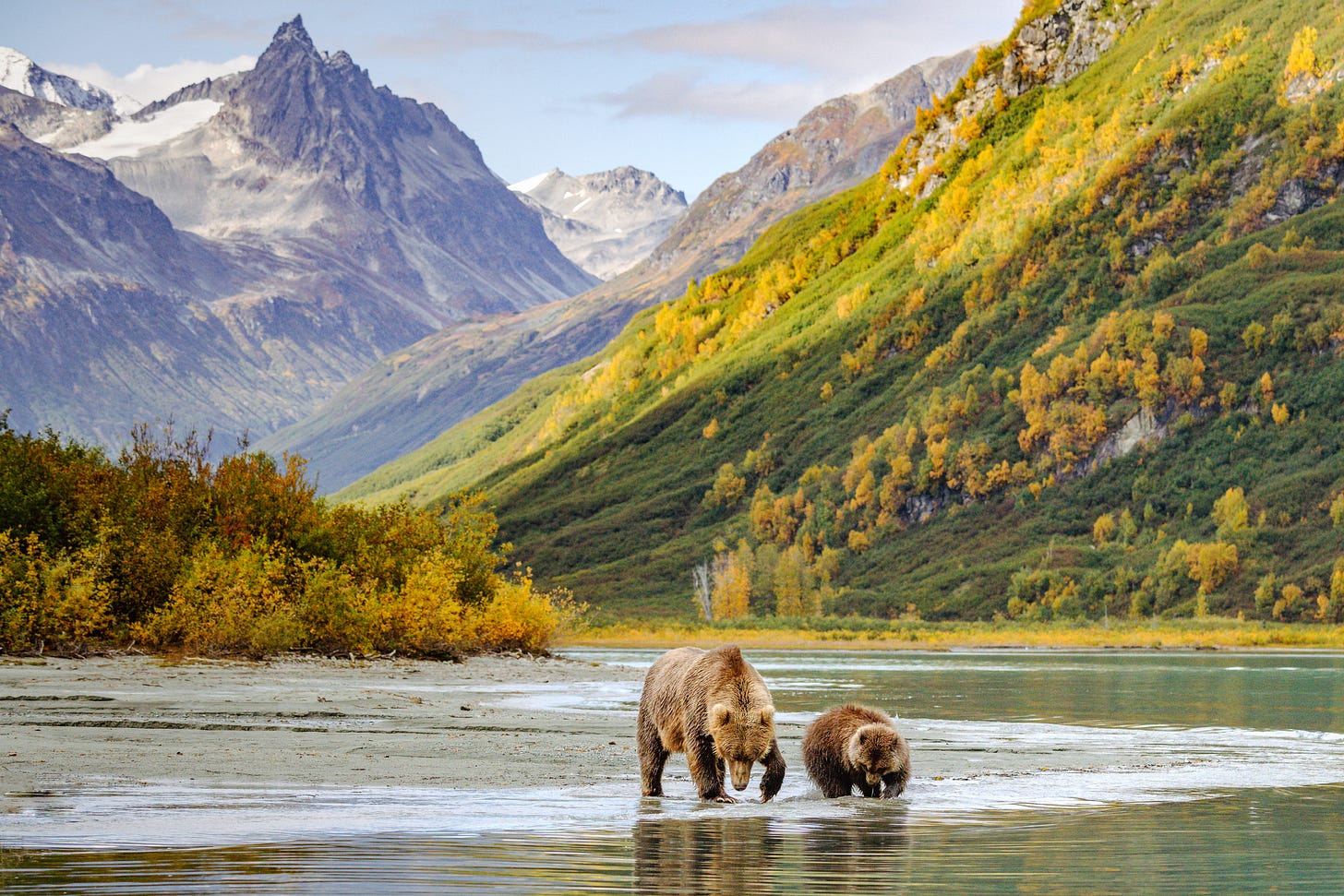SB PM: Putin goes to Russia
Trump’s latest slip-up validates a Russian nationalist myth
In case you missed it on Friday, our daily discussion threads have changed. Commenters are still welcome to use these threads to discuss other topics, but we’ll be sharing a brief article from Halina, our writing fellow, every evening.
“I’m going to Russia on Friday,” President Donald Trump said during a news conference today, held to discuss his plans for a 30-day federal takeover of the Washington, D.C. police department.
But he’s not going to Russia.
Trump is actually heading to Alaska on August 15 to meet with Russian President Vladimir Putin. The goal of the meeting, according to the White House, is to negotiate a ceasefire in Ukraine.
The choice of Alaska as the meeting location is already geopolitically sensitive.
“This is not quite as bad as Trump inviting the Taliban to Camp David to talk about the peace negotiations in Afghanistan,” John Bolton, Trump’s former national security adviser, told CNN’s Kaitlan Collins on Friday. “But it certainly reminds one of that.”
For decades, Russian nationalists and propagandists have pushed the idea that Alaska rightfully belongs to Russia. And Trump’s mistake, which could be easily written off as just another in a long line of verbal blunders by the president, inadvertently nods to the enduring conspiracy.
While Russia has not made any official territorial claim on Alaska since its sale to the United States in 1867, calls for its “return” have periodically surfaced in political rhetoric, online propaganda, and pop culture. Conspiracy theories persist that the U.S. only leased Alaska for 99 years, or that Russia was never paid, despite clear historical documentation showing that the U.S. purchased the territory from the Russian Empire for $7.2 million in perpetuity.
These myths are not just fringe ideas. Russian-born political scientist Sergej Sumlenny, founder of the European Resilience Initiative Center, shared in a thread on X that he was taught in school during the 1990s that “Alaska is Russian.” He described these beliefs as “essential” to the Kremlin’s nationalist messaging.
According to Dr. Sumlenny, this narrative has been consistently reinforced by Russian state propaganda and culture. He refers in his post to the early 1990s, when nationalist songs calling for the return of Alaska began to circulate. He points to a song by Lyube, a Russian rock band widely referred to as Putin’s favorite, that includes the lyrics, “give us back Alaska, our native Russian land.”
More recently, the messaging has become overt in advertisements, print and digital publications, and state television. In 2022, billboards in Siberia displayed the phrase “Alaska is Ours,” and Russian state media figures have openly discussed reclaiming the territory. Journalist Julia Davis has documented numerous instances of pro-Kremlin commentators advocating for Alaska’s return over the last decade, including one such moment in 2018 when Russian media personality Olga Skabeeva said, “turns out, the first president of Russia was threatening [Bill] Clinton that the Communists will come back, take the Crimea and Alaska. We already took the Crimea, albeit without the Communists. Now it’s Alaska’s turn.”
Trump’s geographical slip during today’s news conference might have been a simple gaffe. But intentionally or not, it echoes a myth that many in Russia have been taught to believe — and that the Kremlin has long worked to legitimize.



Imagine what would happen if a Democratic president during the Cold War referred to an American state as part of Russia.
Unfortunately I can't find the Matt tweet to cite here (maybe he deleted it), but he made a point that while crime has fallen, especially compared to its height in the late 20th century, people seem to be freaking out more about the remaining crime that exists, because it's videotaped more often. I'm sure I'm far from the first person to make this observation, but it is a paradox that wider surveillance has likely helped to reduce crime, but also making people think that crime is higher than it really is.